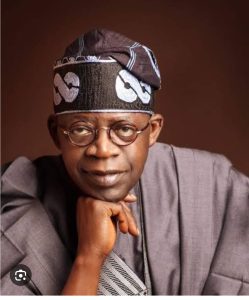PRESIDENT TINUBU: A Strategic Operator or a Lucky Man?
4 min read
By Eculaw Media
In the charged atmosphere of Nigerian politics, the ascent of President Bola Ahmed Tinubu has sparked extensive debate about his capabilities as a leader. Many observers tout him as a strategic political operator, able to navigate the complex and often treacherous waters of governance since he became Governor of Lagos State in 1999. His political success has, however, led some to question whether his achievements are a result of keen strategy or simply a fortunate run of luck.
From 1999 onwards, Tinubu has consistently achieved his political objectives, often while his contemporaries have stumbled or faltered. This success invites admiration and intrigue, prompting some to regard him as an astute leader with exceptional foresight. Yet, a closer examination may suggest that luck has played a more significant role than previously acknowledged, allowing him to appear more clever and calculating than he may truly be.
Importantly, much of the praise for Tinubu’s political acumen comes from his loyalists. They are inclined to portray him as a wise and formidable leader. An objective assessment, however, raises questions regarding his judgment and the implications of his decisions. For instance, during his tenure as Governor, he navigated tense relationships with then-President Olusegun Obasanjo, who was notorious for using the Economic and Financial Crimes Commission (EFCC) to pursue governors he viewed as adversaries. Curiously, Obasanjo did not target Tinubu with the EFCC, despite former EFCC Chairman Nuhu Ribadu labeling him as “the most corrupt governor.”
Recently, new revelations have come to light suggesting a potentially compelling explanation. Reports surfaced that the FBI opposed efforts to obtain Tinubu’s records, citing that he had been an asset for U.S. intelligence. This raises pertinent questions: What was the nature of his relationship with U.S. authorities, and how extensive was their protection of him during his political battles?
Obasanjo, it turns out, appeared weak when faced with the might of the American government. It is not far-fetched to speculate that a mere phone call from the U.S. State Department could have calmed tensions surrounding Tinubu. Such protection may explain the formidable resilience Tinubu exhibited while battling Obasanjo, shielding him from political repercussions and facilitating his wealth accumulation—both during and after his governorship.
The implications of this dynamic are significant. If it is true that U.S. political support lent him a cloak of invincibility, it complicates the narrative surrounding his rise to power. It suggests that rather than relying solely on strategic brilliance, Tinubu may have benefitted from a fortunate combination of circumstance and external assistance.
Moreover, evaluating Tinubu’s decisions reveals a worrying lack of wisdom in many of his actions. An alarming example is his declaration of a state of emergency in Rivers State, executed with such tactlessness that it raised immediate suspicions about ulterior motives. The constitutional processes were bypassed, including improper funding of the appointed administrator before parliamentary assent. By failing to adhere to legal frameworks, Tinubu diminished the integrity of his presidency and his ability to claim legitimate governance.
As we reflect on his appointments, a troubling pattern emerges: loyalty over competence. Consider the appointment of Festus Keyamo as Minister, an individual who once vehemently criticized Tinubu in 2003, questioning his qualifications as a Governor. They once labeled each other criminals. Similarly, Tinubu’s selection of Reno Omokri—who openly condemned him as a drug lord—is perplexing. Omokri, though residing in the U.S., has little to do with the Nigerian diaspora. His relevance is only within the Nigerian social media community. What could have been the justification for his inclusion on the list of potential ambassadors? Omokri’s appointment has not strategic significance and it does not align with any political logic.
When we further examine Tinubu’s conduct during his presidential campaign, inconsistencies become glaringly apparent. His proposals such as recruiting “five million” Nigerians into the army and feeding them with plantains seemed less like strategies of a shrewd politician and more the musings of someone disconnected from the pressing issues facing ordinary citizens. His reluctance to engage in presidential debates because he believed that his opponents would “spy” on him and “steal” his strategy and similar drivels only revealed a troubling pattern of indecisiveness and confusion rather than a solid command of any clear plan or strategy.
In conclusion, a careful examination of President Tinubu’s actions over the years paints a picture of a leader burdened with contradictory impulses rather than one defined by strategic foresight. The presidency is a challenging arena, demanding not only resilience but also clarity of vision and purpose. Whether Tinubu can evolve beyond the circumstances that have defined his past remains to be seen, but it is evident that the Nigerian political landscape is rife with complexities and contradictions, prompting deeper scrutiny of those at its helm. As the country grapples with issues of governance and representation, the Nigerian people deserve intelligent leadership that transcends luck and embraces the principles of accountability and integrity—a standard that must be upheld as we look toward the future.

